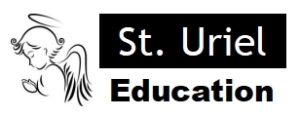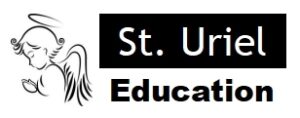I know from my own experience working on my doctoral dissertation that academic writing is definitely a strenuous act. It demands patience, persistence, and most importantly, so much practice. Learning the mechanics of academic writing necessitates the help of your adviser, your peers, and a lot of focused reading.
The purpose of today’s post is to share with you some helpful academic writing guides to help you learn what it takes to write in a proper academic style. I wish somebody shared these titles with me early on in my grad school. They would made a huge difference but as the quip goes, better late than never.
If you are interested in developing your research methodology skills, I high recommend this collection of some of the best research methodology textbooks for student researchers.
Links to the books are under the visual.
1- Writing Your Dissertation in Fifteen Minutes a Day: A Guide to Starting, Revising, and Finishing Your Doctoral Thesis, by Joan Bolker
“Joan Bolker, midwife to more than one hundred dissertations and co-founder of the Harvard Writing Center, offers invaluable suggestions for the graduate-student writer. Using positive reinforcement, she begins by reminding thesis writers that being able to devote themselves to a project that truly interests them can be a pleasurable adventure. She encourages them to pay close attention to their writing method in order to discover their individual work strategies that promote productivity; to stop feeling fearful that they may disappoint their advisors or family members; and to tailor their theses to their own writing style and personality needs.”
2- How to Write a Lot: A Practical Guide to Productive Academic Writing, by Paul J. Silvia , PhD
“In this practical, light-hearted, and encouraging book, Paul J. Silvia explains that writing productively does not require innate skills or special traits but specific tactics and actions. Drawing examples from his own field of psychology, he shows readers how to overcome motivational roadblocks and become prolific without sacrificing evenings, weekends, and vacations.”
3- Write No Matter What: Advice for Academics, by Joli Jensen
“Jensen begins by busting the myth that universities are supportive writing environments. She points out that academia, an arena dedicated to scholarship, offers pressures that actually prevent scholarly writing. She shows how to acknowledge these less-than-ideal conditions, and how to keep these circumstances from draining writing time and energy. Jensen introduces tools and techniques that encourage frequent, low-stress writing. She points out common ways writers stall and offers workarounds that maintain productivity.”
4- Stylish Academic Writing, by Helen Sword
“Elegant ideas deserve elegant expression. Sword dispels the myth that you can’t get published without writing wordy, impersonal prose. For scholars frustrated with disciplinary conventions or eager to write for a larger audience, here are imaginative, practical, witty pointers that show how to make articles and books enjoyable to read—and to write.”
5- The Elements of Academic Style: Writing for the Humanities, by Eric Hayot
“Eric Hayot teaches graduate students and faculty in literary and cultural studies how to think and write like a professional scholar. From granular concerns, such as sentence structure and grammar, to big-picture issues, such as adhering to genre patterns for successful research and publishing and developing productive and rewarding writing habits, Hayot helps ambitious students, newly minted Ph.D.’s, and established professors shape their work and develop their voices.”
6- Writing Your Journal Article in Twelve Weeks: A Guide to Academic Publishing Success, by Wendy Laura Belcher
“Wendy Laura Belcher′s Writing Your Journal Article in Twelve Weeks: A Guide to Academic Publishing Success is a revolutionary approach to enabling academic authors to overcome their anxieties and produce the publications that are essential to succeeding in their fields. Each week, readers learn a particular feature of strong articles and work on revising theirs accordingly.”
7- Writing Science: How to Write Papers That Get Cited and Proposals That Get Funded, by Joshua Schimel
“Writing Science is built upon the idea that successful science writing tells a story. It uses that insight to discuss how to write more effectively. Integrating lessons from other genres of writing with those from the author’s years of experience as author, reviewer, and editor, the book shows scientists and students how to present their research in a way that is clear and that will maximize reader comprehension.”
8- A Manual for Writers of Research Papers, Theses, and Dissertations, by Kate L. Turabian (Author), Wayne C. Booth (Editor), Gregory G. Colomb (Editor), Joseph M. Williams (Editor), University of Chicago Press Staff (Editor)
“The Manual retains its familiar three-part structure, beginning with an overview of the steps in the research and writing process, including formulating questions, reading critically, building arguments, and revising drafts. Part II provides an overview of citation practices with detailed information on the two main scholarly citation styles (notes-bibliography and author-date), an array of source types with contemporary examples, and detailed guidance on citing online resources.”
Disclaimer: this post contains Amazon affiliate links.


Leave A Comment